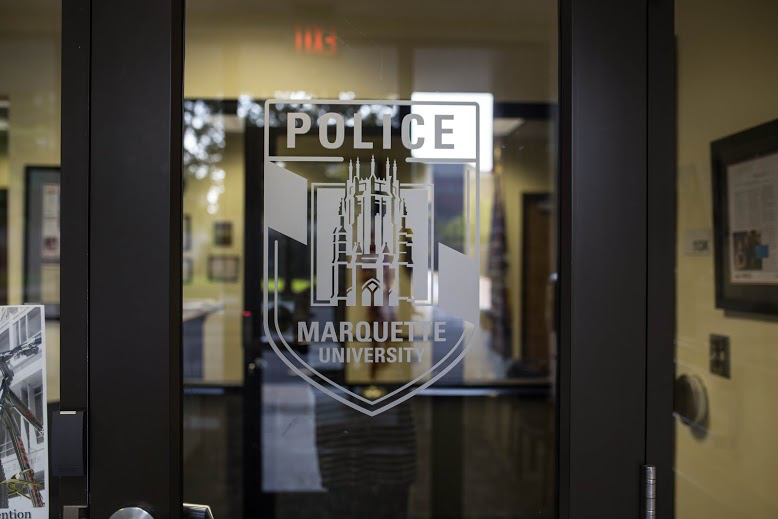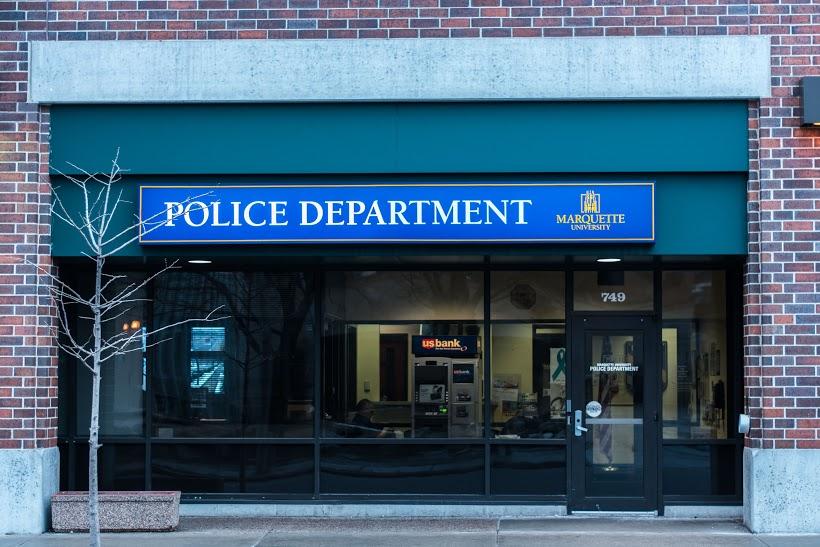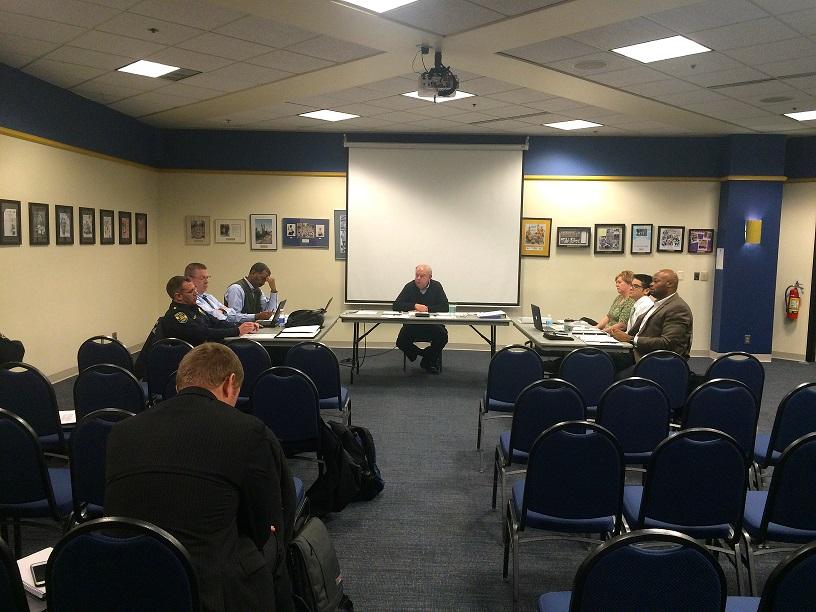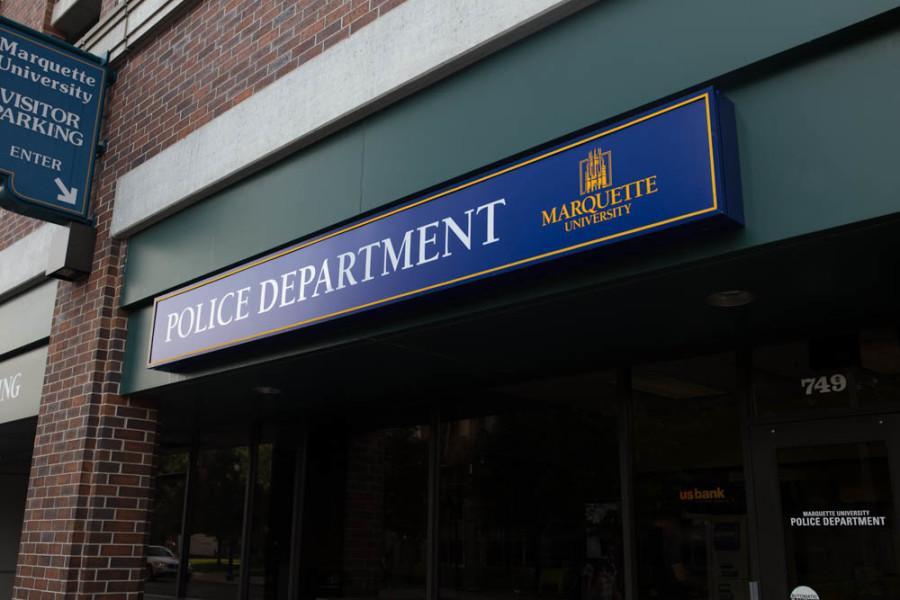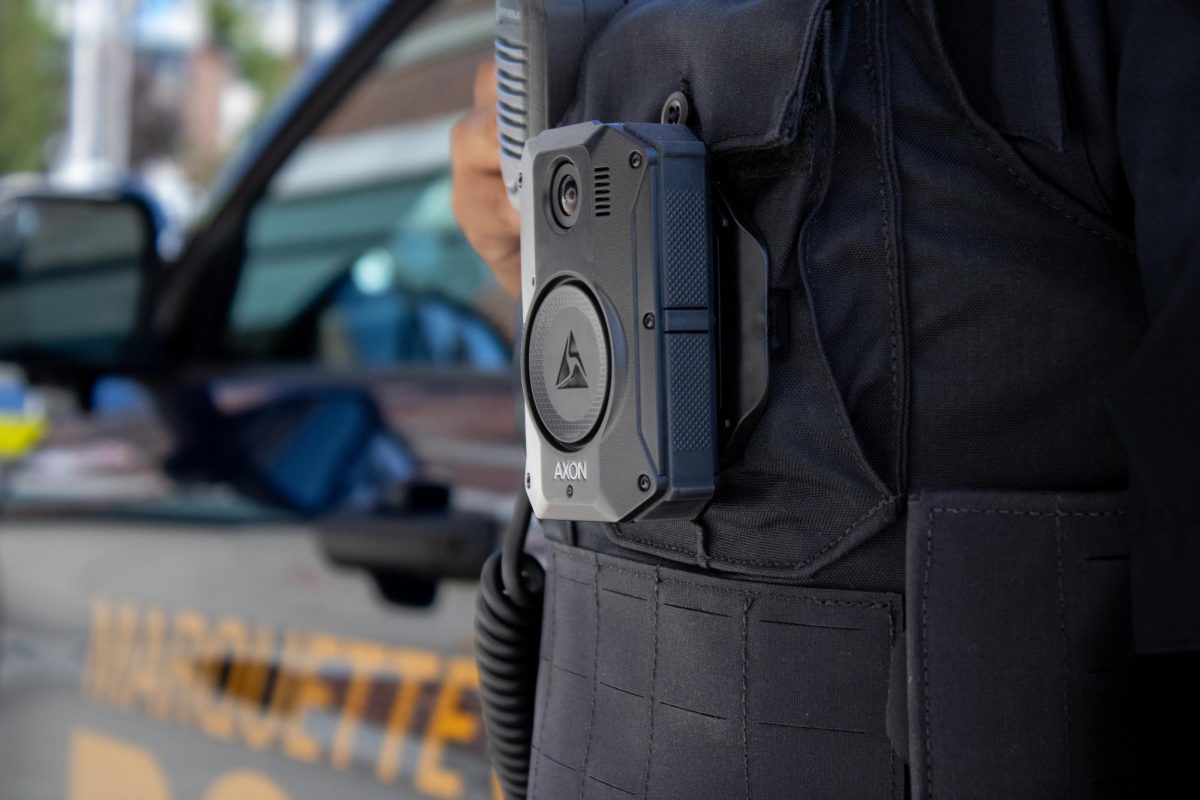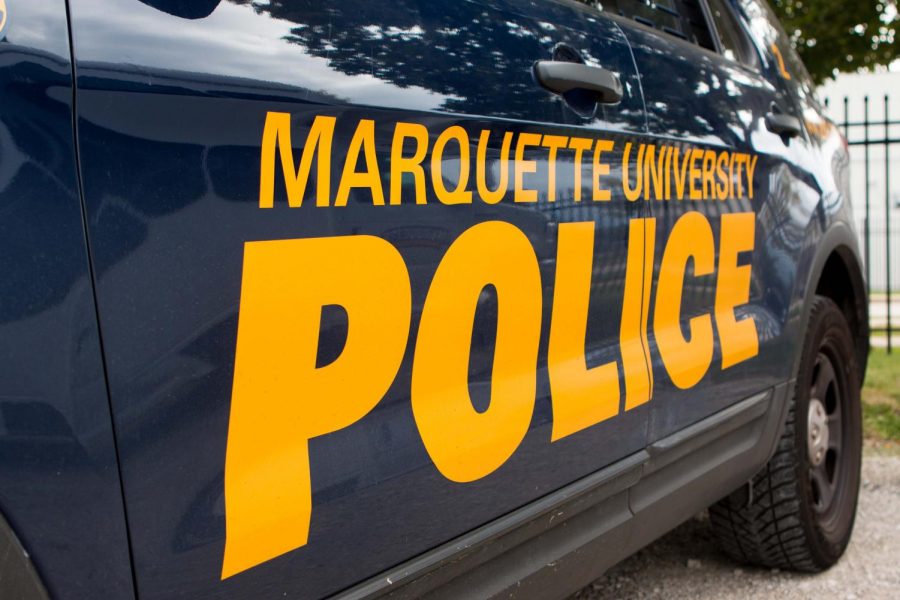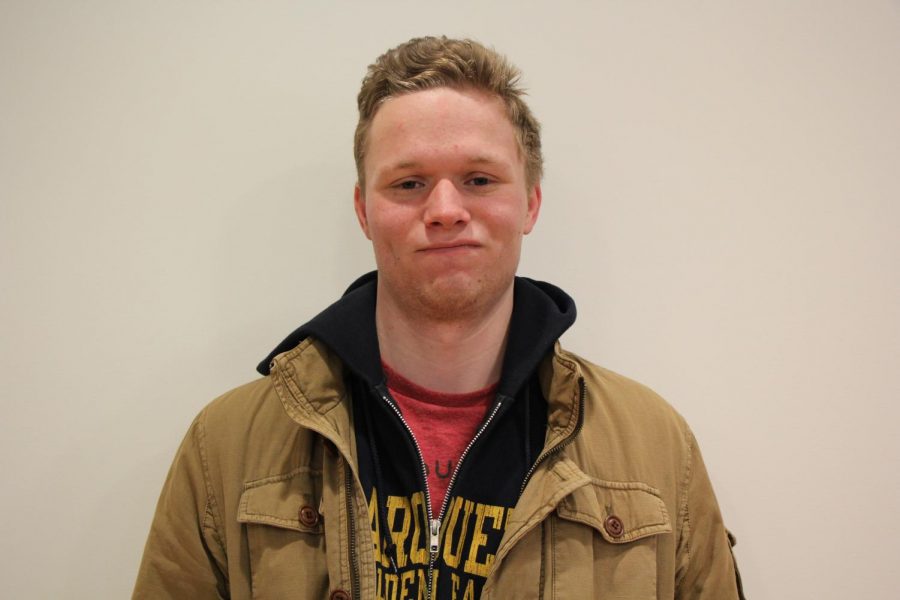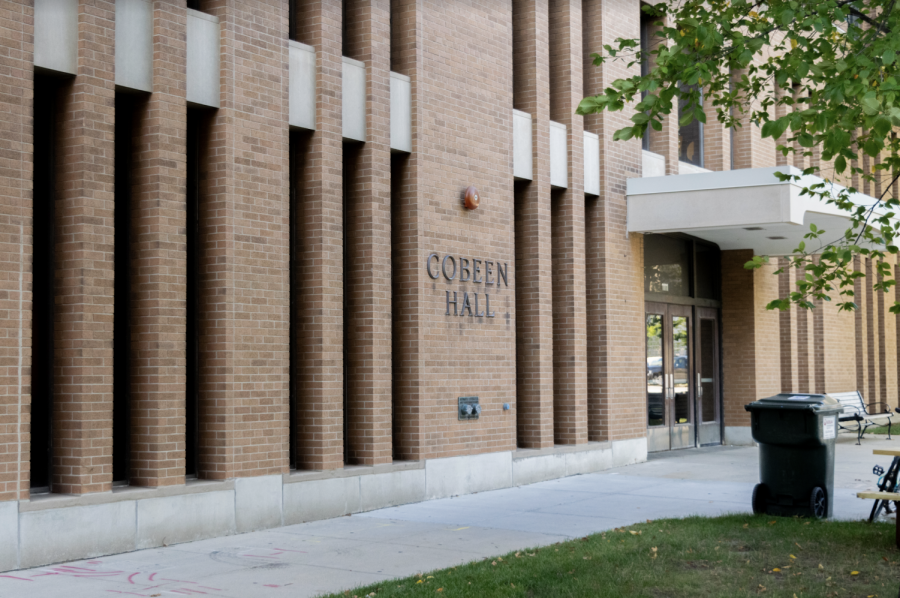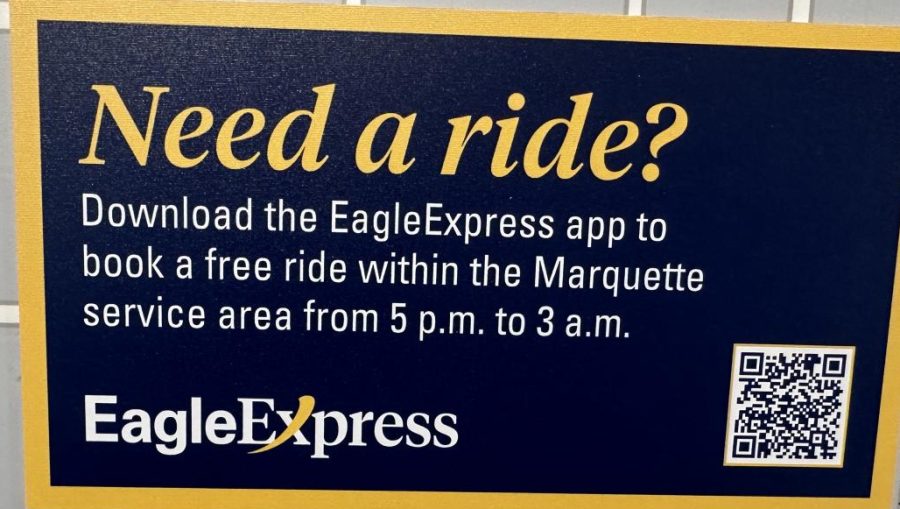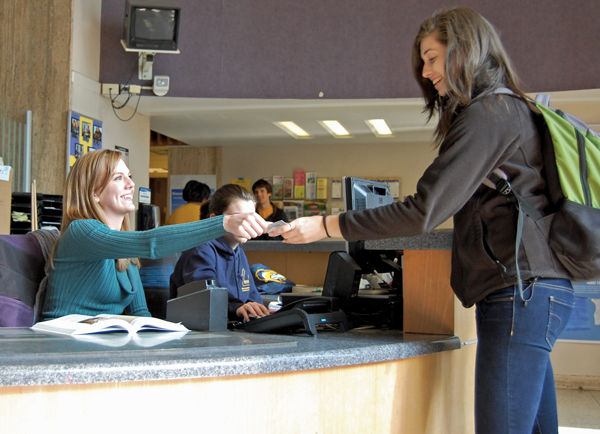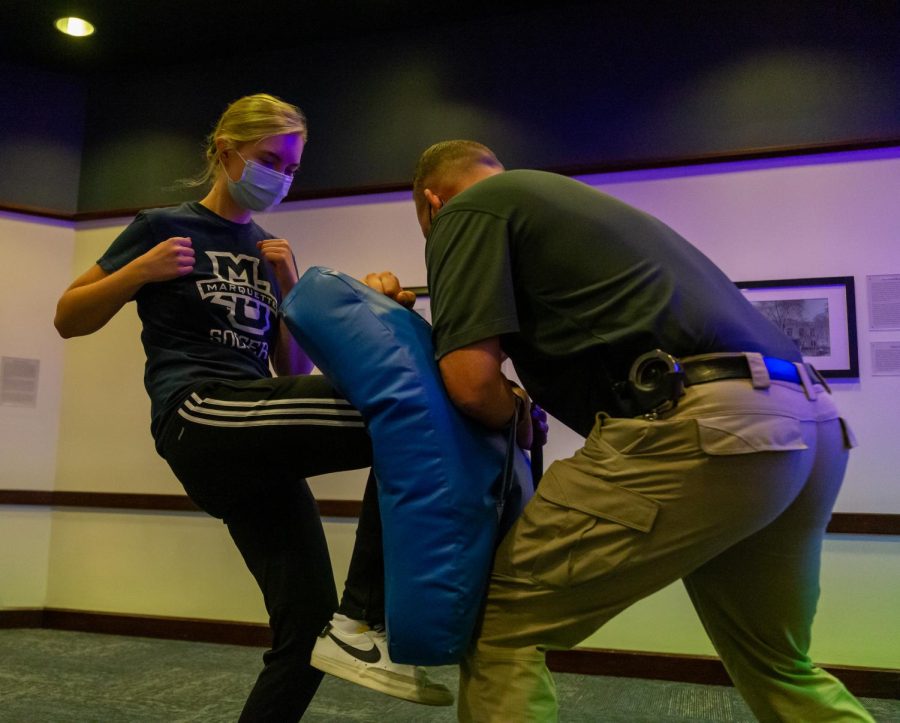The Marquette Police Department is in the midst of a taser pilot program.
The MUPD Advisory Board unanimously voted Feb. 9 to endorse Marquette’s decision to equip MUPD with tasers in the future. Additionally, the board recommended that MUPD adhere to the taser policies and procedure manual discussed during the meeting.
MUPD Captain Jeff Kranz will lead classroom-based taser user certification sessions for all 40 MUPD officers. The sessions will be Feb. 11 and Feb. 13 from 8 a.m. to 4 p.m in the MUPD offices. Each officer will attend one session.
“We’re still in the process of evaluating the tasers, and part of that is exposing the officers to it so they see how it operates, get their feedback on it, see if they feel that it’s going to be functional out on the street and enhance their knowledge of how the tool works,” Kranz said.
A two-year taser pilot program will be implemented within the next few months. At the start, MUPD will have four tasers at its offices. The tasers will be distributed, as MUPD sees fit, to officers when they start a patrol shift.
Tasers were an attractive option for MUPD because they provide another non-lethal option for officers. Along with learning the functionality of tasers, the officers will receive de-escalation and officer-created jeopardy training.
The de-escalation training will put “officers in a position to not use force and resolve (conflict) through other means by creating distance and time,” Kranz said. “The more distance, the more time you have to de-escalate.”
The officer-created jeopardy training will focus on how officers can avoid putting themselves in danger by maintaining a safe distance from a potential suspect.
“The taser itself gives officers the chance to back off and give some space,” Kranz said. “The only time a taser would actually be used on a person is if there is an immediate threat of harm being done to somebody.”
Kranz mentioned instances when tasers should not be used, including when someone is passively resisting arrest or fleeing from an officer.
Kranz also said MUPD will track the deterrent effects of tasers, such as when tasers are made known but not used by an officer. This gives MUPD the chance to analyze how much impact the possibility of taser use has on potential suspects.
Michael Krzewinski, adjunct assistant professor of criminology and law studies, said tasers are less of a hassle compared to guns and there is a far greater chance of deadly consequences when using guns as opposed to tasers. He said tasers will decrease the chances of a lawsuit or citizen complaints filed against police officers.
MUPD’s pilot taser program follows the national trend of increased taser and stun-gun sanctioning by police departments across the country. A Justice Department report concluded that the sanctioning of tasers and stun guns rose from seven percent in 2000 to 81 percent in 2013, and has likely risen since.
Kranz and MUPD Chief Paul Mascari were optimistic that tasers will be used on a limited basis, while mentioning during the advisory board meeting that it has been several months since the possibility of tasers was an option.
Krzewinski, a veteran of the Milwaukee Police Department, said he wholeheartedly supports the implementation, and said tasers are one of the greatest inventions for police officers.
MUPD Chief Paul Mascari recently met with Marquette IT Services to discuss the technical side of body cameras, such as storage logistics. He said they are in the process of finding a project manager for body cameras, and that the due diligence required with this project makes it difficult to have a definitive timetable.
Mascari said body cameras will hopefully be implemented in a trial phase by the end of this month. The trial phase will last until at least summer, giving MUPD an idea of how much data is gathered by an average summer patrol shift. MUPD can then compare the summer data to the spring semester data.
The advisory board also discussed LIMO education. Mascari said MUPD focuses on educating students about LIMO services but sometimes overlooks informing faculty and staff.
“That’s an area where, quite frankly, we could be doing a better job,” Mascari said, noting that MUPD will look into better ways of training faculty and staff in this regard.
In addition, during the advisory board meeting, more details emerged about the attempted robbery and shooting incident that took place Feb. 6 on 20th St.
Kranz said the two victims, who are not affiliated with Marquette, were walking back from the The Rave on 24th St. and Wisconsin Ave. One victim suffered a non-critical gunshot graze, while the other victim was not physically harmed.
The next advisory board meeting is scheduled for Tuesday, April 5, from 3:30 to 5:30 p.m. in the Raynor Library Conference Center.

